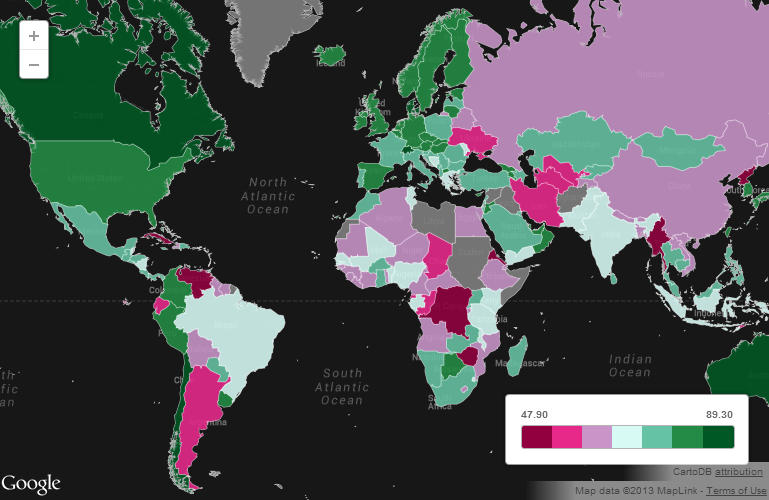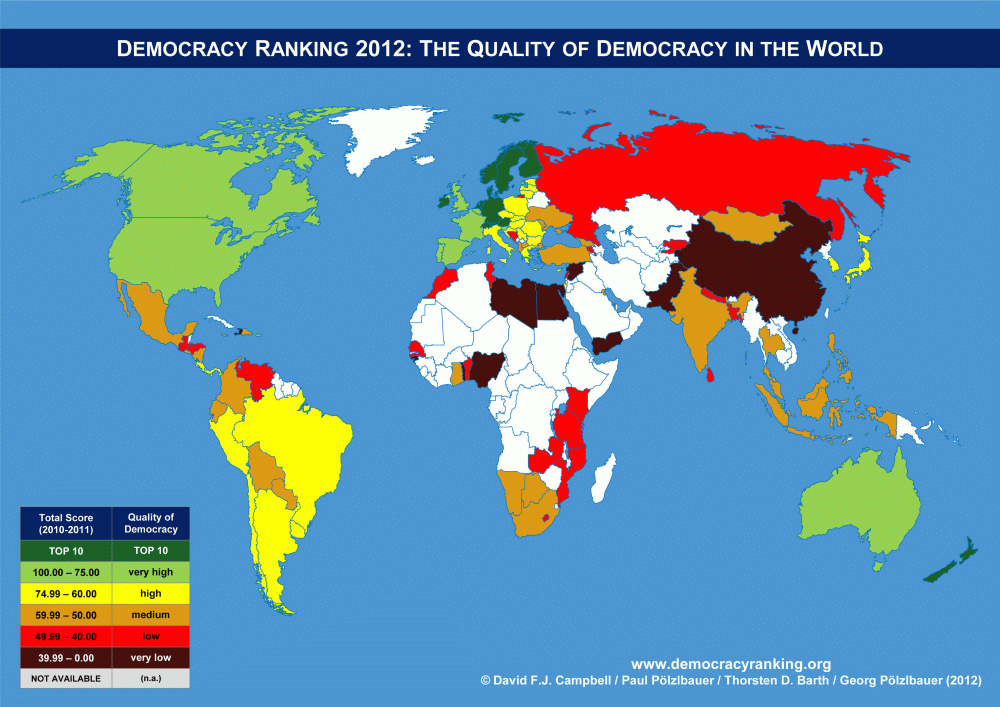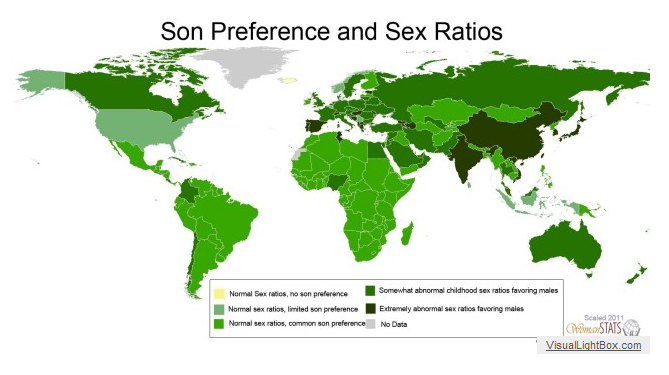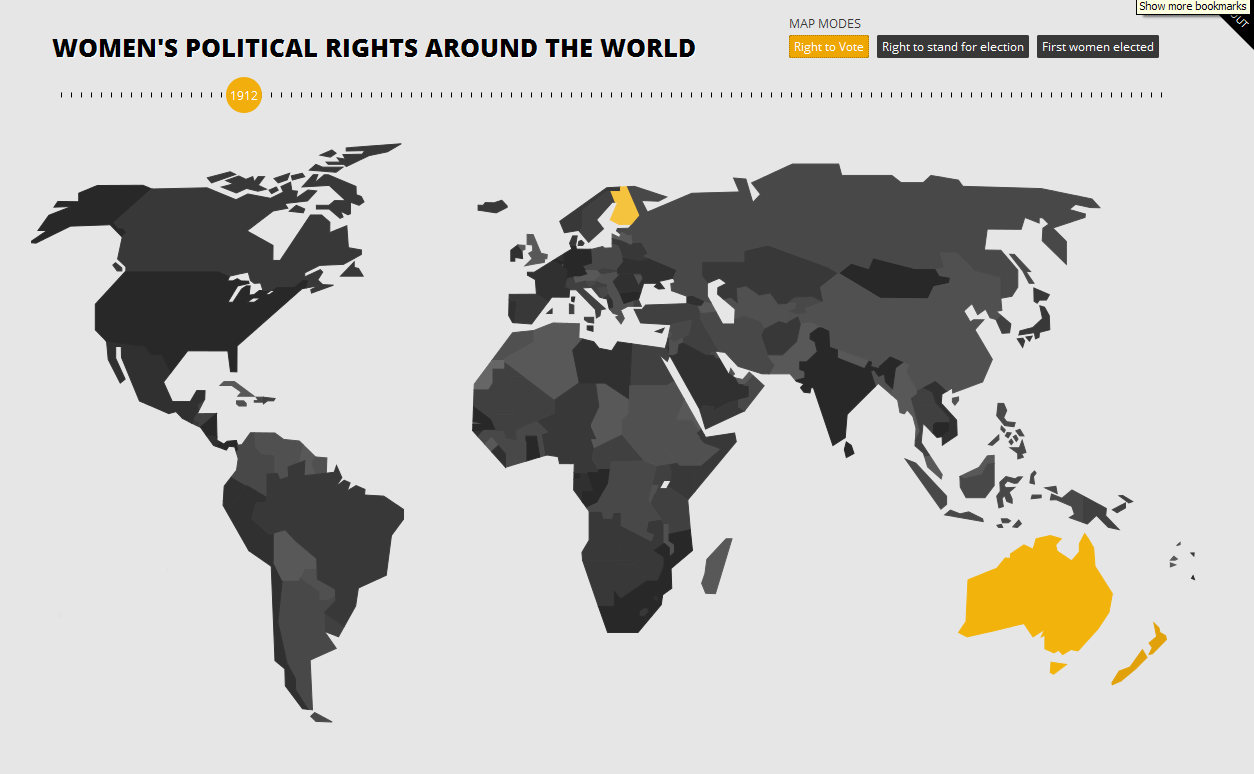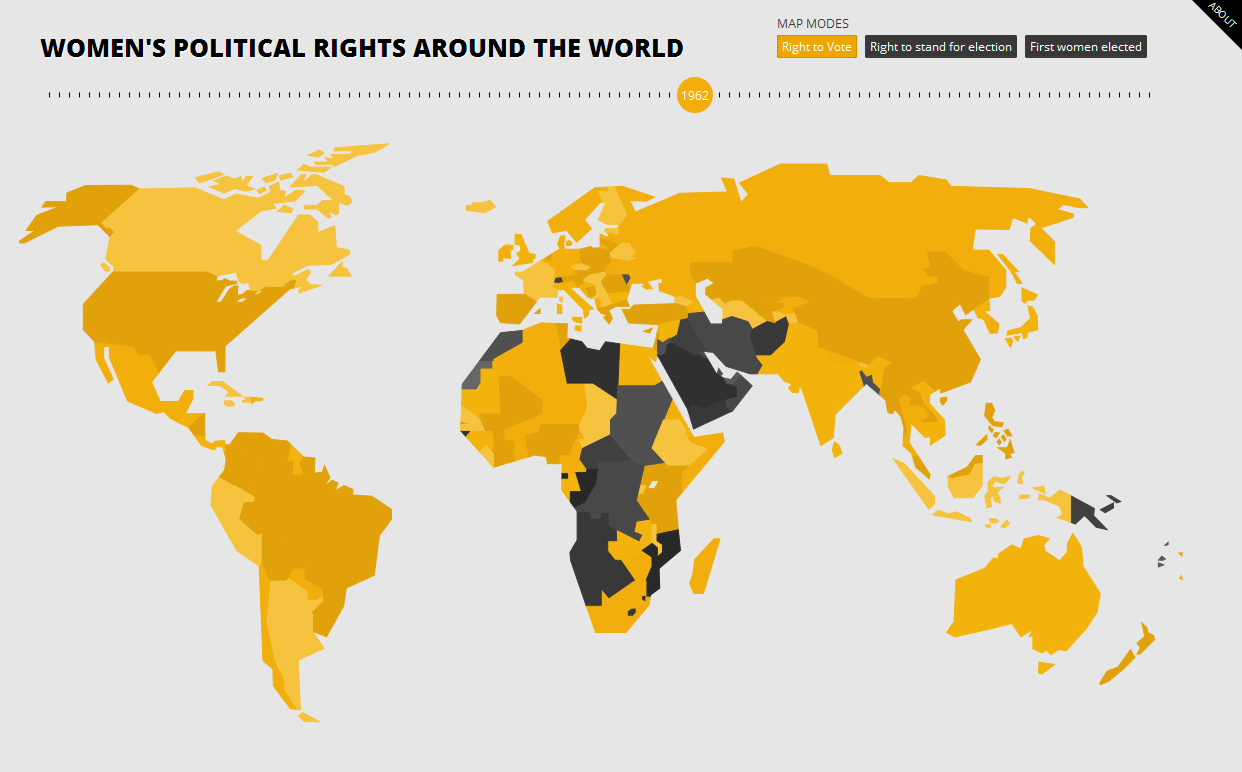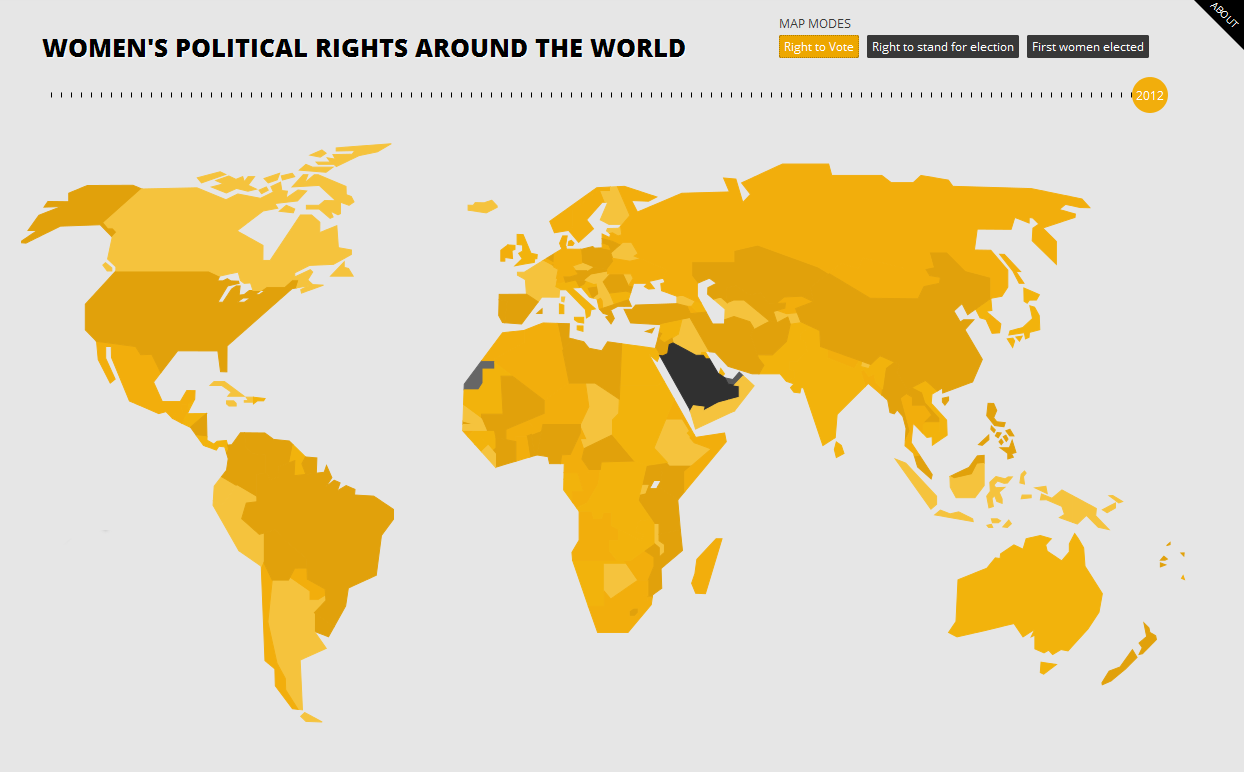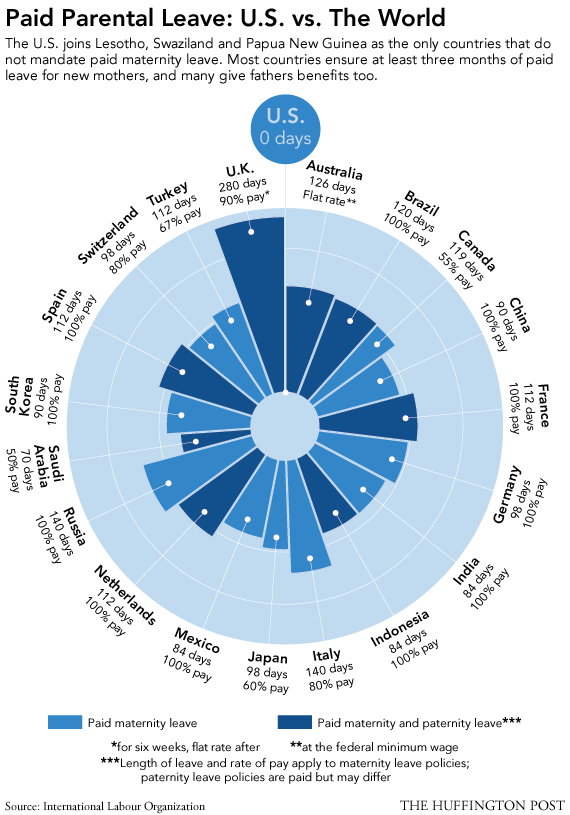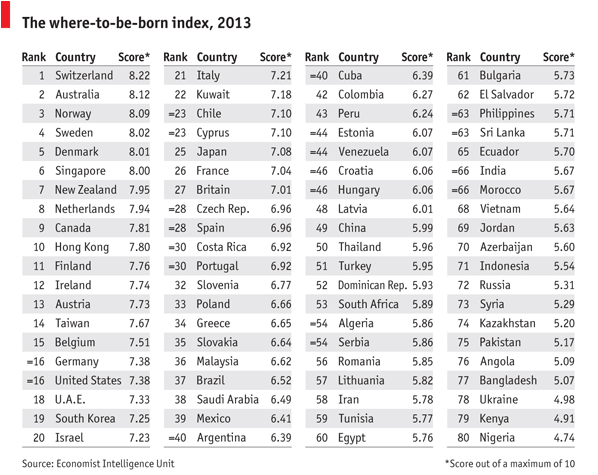The Economic Freedom Index, compiled by the Heritage Foundation, is a measure of the economic freedom given to citizens in each of the 185 countries where it is measured. A total of ten components of economic freedom are considered, all grouped under four categories: rule of law, limited government, regulatory efficiency, and open markets.
The highest ranking country in the list is Hong Kong, with a score of 89.3, affording its citizens the highest degree of economic freedom in the world. Hong Kong is followed by Singapore, Australia, New Zealand, Switzerland, Canada, Chile, Mauritius, Denmark, and the United States, among the top ten.
On the opposite side, the most repressed countries in terms of economic freedom include North Korea, Cuba, Zimbabwe, Venezuela, Eritrea, and Burma.
Source: International Business Times: US Economic Freedom Is At Lowest Point Since 2000 [MAP]
